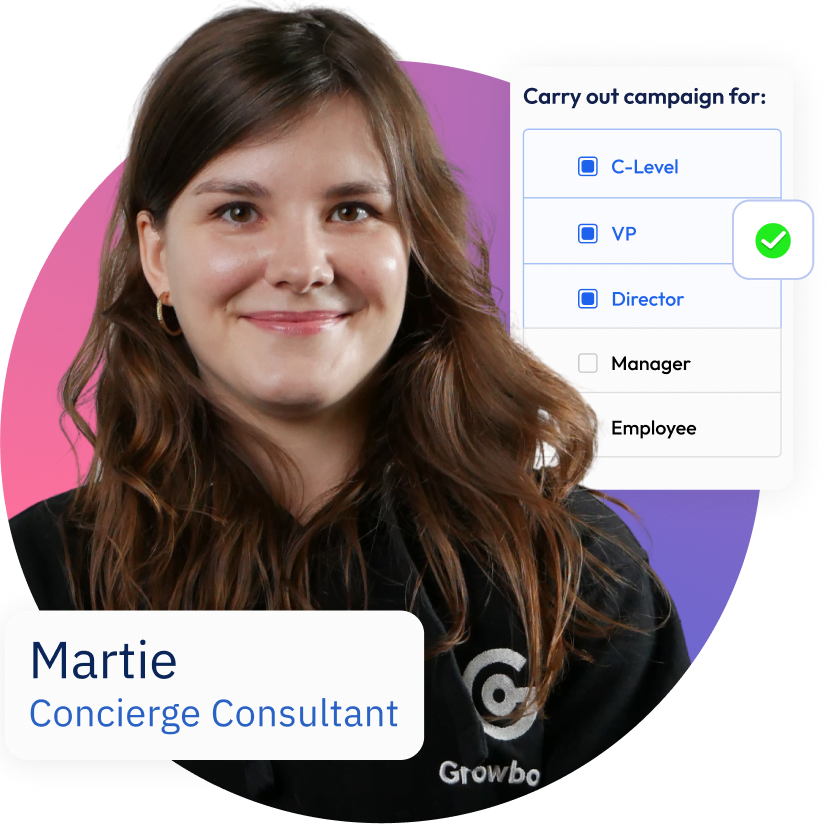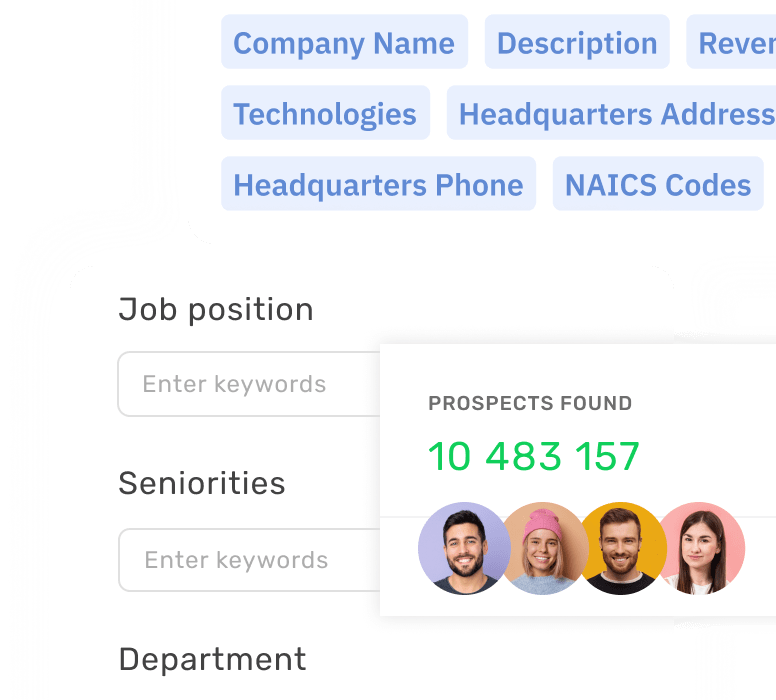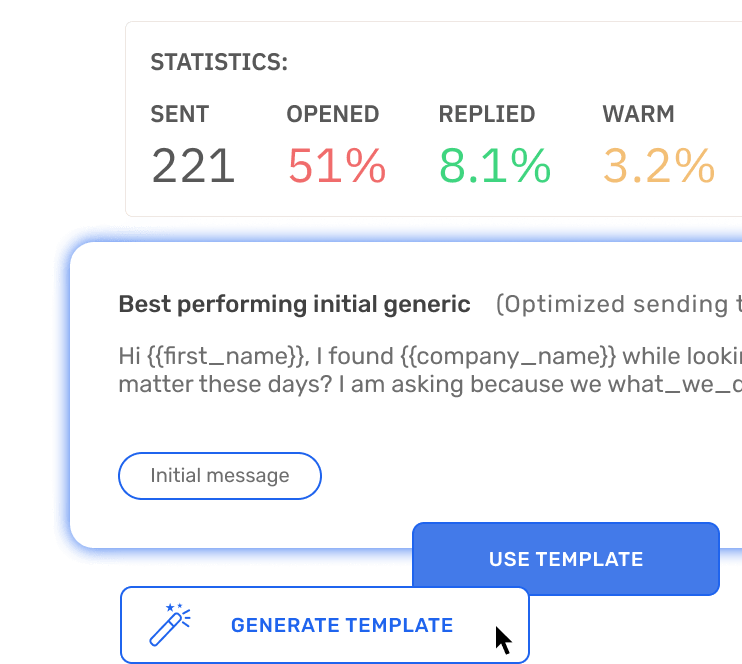Every sale opportunity a rookie SDR misses, translates into lots of losses for the company. This is why it’s time to invest in your SDRs’ training to generate better results.
SDR stands for Sales Development Representative and is a person that focuses solely on outbound prospecting. Big companies usually separate sales reps into different roles to make their processes more efficient.
The sales development representative job is about freeing the sales executives of the time-consuming task of prospecting so they can spend more time selling to qualified leads. Instead of closing deals, SDRs help the sales team by focusing on moving leads through the pipeline.
What are the crucial skills for SDRs that will help them achieve better results? Continue reading to find out.
TL;DR
- A sales development representative focuses on outbound prospecting to generate sales leads.
- The sales success of any business depends heavily on the work of every sales development representative in the team.
- SDR finds potential customers and uses the lead qualification process to identify them as sales prospects.
- A great sales development rep should use a combination of sales prospecting techniques like social selling, cold calling, and email outreach.
- Key skills for a sales development representative include in-depth understanding of the audience, familiarity with sales language and processes, video prospecting, prioritizing quality over quantity, commitment, avoiding pushy pitches.
- SDRs should have in-depth knowledge about the product/service they are trying to sell and understand the audience and be able to provide the best solutions and interact with customers in a more personal way.
- Quality is more important than quantity in sales prospecting.
leave no lead unexplored
Every potential client within reach
- 180m+ contacts
- CRM integrations
- 23 Prospect filters
- 15 Company filters
What does a sales development representative do?
Sales Development Representatives (SDRs) are an integral part of any sales team. Their main responsibility is to generate sales leads by identifying potential customers and qualifying them as sales prospects.
To achieve this, SDRs use a combination of sales prospecting techniques like social selling, cold calling, and email outreach. They also manage their time effectively to meet daily, weekly and monthly targets.
Active listening is crucial in their job as they need to understand the customer’s pain points and needs. Once a prospect is identified, SDRs build relationships by following up with phone calls, emails, and other communication channels.
They also work closely with sales professionals to support the sales process and ensure a smooth sales cycle.
To sum up, a sales development rep’s job is to work independently, follow established processes, and be proactive in identifying target accounts. Ultimately, the success of a sales team depends heavily on the work of their sales development reps.
12 Skills an SDR should master
1. In-depth product knowledge
First and foremost, it’s crucial that the sales reps know EVERYTHING about the product or service they are trying to sell.
You can’t sell something and consequently achieve the sales goals if you don’t believe in it or know it inside and out, so make sure you provide your SDRs with any information they might need.
2. Know your audience
Secondly, once they have learned everything about the product or service, it’s time for them to understand the audience and develop strong communication skills.
Instead of teaching your SDRs how to pitch, teach them how to listen and understand the problems your customers are facing.
Thus, they will be able to provide the best solutions and interact with customers in a more personal way.
3. Be familiar with the sales language and the selling process
One of the most important sales development skills, besides communication skills, that an SDR should have is to know the language of sales and the selling process.
Many companies have their own “style” when it comes to sales. Got a process that you have developed internally and has proven to be successful?
Make sure your sales professionals and SDRs know it by heart, as it will not only enhance their communication skills but also improve the efficiency of the sales operations within your company.
4. Know how to use a CRM and CTI
Fourth – knowing how to use CRMs and CTIs (Customer Type Indicators) effectively is extremely important for every sales rep, as those provide valuable information about the prospects.
But SDRs need to also learn how to adapt their strategy to every prospect, given the known facts.
Different buyers have different buying journeys, move at different speed and respond differently to various methods.
By combining their knowledge of CRM and CTI tools with effective sales training, SDRs can optimize their approach to better communicate and engage with prospects.
5. Master video prospecting
The fifth skill an SDR should master is video prospecting. The hardest part that sales reps need to face nowadays is standing out in the minds of their prospects.
Once upon a time, emails and cold calls were highly effective, but these days, when our inboxes are spammed with dozens of emails, salespeople need to turn to more innovative solutions to get through to their leads.
With the rise of social media, we are consuming more video content than ever before, because marketers took full advantage of this trend.
Why can’t your SDRs do the same?
According to a study Google did, 70% of B2B buyers are watching videos throughout their path to purchase. It’s time to make yours!
6. Put quality over quantity
Sixth – knowing that quality is more important than quantity is one of the critical skills for sales development representatives (SDRs). Thus, a more personalized, human approach is desired when SDRs are contacting leads.
Building a relationship with the leads will have a huge impact on their journey through the sales pipeline, even if that means reaching out to fewer of them.
What you can do to make sure you don’t miss out on any leads is build a strong process through which your SDRs can both approach leads in a personalized way, while still having enough time to do prospect research.
7. Stay committed
The seventh thing is commitment, which is crucial for achieving sales goals. Ok, this isn’t exactly a skill, but it’s still an important requirement for any SDR — make sure yours are committed, but for good reason.
There are 3 types of commitment:
- affective commitment
- continuance commitment
- normative commitment
Affective commitment is directly linked to the passion the SDR has for the job. In order for an SDR to be passionate about their job, they need to identify themselves with the company culture.
Continuance commitment means that the SDRs will continue to do their job as long as the company makes them feel appreciated.
And normative commitment means that SDRs remain committed to their job even if they don’t feel passionate or happy anymore (often out of loyalty).
8. Follow prospecting tips and best practices
Sales Development Representatives’ job focuses more on lead generation rather than closing deals, therefore they should master the lead qualification process.
This is especially important because it helps rule out bad fits so your sales team doesn’t waste time.
Then, they need to grasp the importance of perfect timing. Following up in a timely manner is important but knowing when not to push too much if the timing isn’t right is also important, if not even more so.
Giving value to prospects. Helping prospects overcome their struggles shouldn’t be limited to the solutions your company can offer. When SDRs are trying to build a relationship with their prospects, sending helpful insights (study cases, infographics etc.) could prove highly effective.
And finally, sales development reps should be there for their customers, even after they closed the deal. Word of mouth is a powerful tool that not nearly enough SDRs use to their advantage.
By being helpful to past customers they might get introduced to people they would not have been able to get a hold of otherwise.
Keeping track of customer satisfaction KPIs such as the Net Promoter Score (NPS) is also a good way to make sure that the SDR-customer relationship is a positive one.
9. Do not make SDRs pitch
A good SDR should not try to push the product or service to their prospects.
Instead, they should utilize their SDR skills to identify the challenges their prospects are facing (even when they don’t open up about them) and only intervene to suggest possible solutions.
By leveraging their SDR skills, such as active listening, effective questioning, and empathetic understanding, SDRs can uncover the specific pain points and needs of their prospects.
This enables them to provide tailored solutions that address those challenges and align with the prospects’ goals, fostering more meaningful engagements and increasing the chances of successful conversions.
As a result, SDRs can establish themselves as trusted advisors, ultimately driving stronger sales outcomes and leading to achieving the sales goals of your business.
10. Approaching prospects in a non-stalkerish way
Sometimes, it’s better for your sales team to approach someone on social media, or even offline, at networking events, before directly contacting them.
Whether it’s liking an interesting article or asking a mutual friend for a casual introduction at the gym, this will result in the prospect getting to know a little bit about the SDR before being presented with an offer.
When the prospect gets to know the SDR first, this helps to maximize the chances of that prospect converting, or at least listening. This goes hand in hand with the last one, as prospects don’t always open up easily.
11. Attract “influencers” within a company
Although every company has its decision-makers (CEO, President, Board of Directors etc.), those aren’t probably the ones who will end up using the product or service you are offering.
A good SDR should try to attract as many “influencers” as possible to create a buzz within the company. Once you grab the attention of the decision-makers, it should be easier to build a case.
Reach More with Less Effort
Connect with Potential Clients at scale
- AI message generator
- E-mail verification
- Multichannel sequences
- A/B testing
12. Know how to overcome no’s
Unlike account executives, who often get recognition for their closed deals, SDRs lead a mostly unglamorous life. The repetitiveness of the job is enough to make anyone feel low; facing a difficult prospect might completely deplete their energy.
But an SDR can’t let one bad interaction ruin the rest, so resilience is of utmost importance. That’s what separates high-performing salespeople from the rest. A good SDR will consider any rejection an opportunity to learn more.
They will try to understand why they were rejected and how they can perform better so they can change the outcome next time.
Or maybe, they don’t have to wait until next time: you can still change someone’s mind.
The first thing you have to do when faced with a rejection is to find a way to make your prospect say “yes” to a topic related to the rejection motive.
Then, you can try to use persuasion tactics in order to steer the conversation in a direction where you can present your product or service as a viable solution to the prospect’s rejection motive.
Even if this method has only a 50% chance of your prospect changing their mind, if an SDR doesn’t go this extra mile, there’s a 100% chance for the “no” to remain a “no”.
And if that fails, a “no” is still not a bad thing. Managers can take it up a notch and transform something negative into something positive — transform it into a competition!
They can award the least lucky SDR of the month and this way, even though they came in last in terms of performance, it will help make them feel better as well as motivate them to do better next time.
Conclusions
I hope these tips will help you leverage the true power of inbound sales and ditch outdated, ineffective, spam-worthy sales prospecting techniques.
In summary, the role of the sales development representative (SDR) is crucial in any sales team. They are responsible for generating sales leads, qualifying them, and moving them through the pipeline.
The 12 skills mentioned in this article can help SDRs increase their efficiency and effectiveness. Among these skills, having in-depth product knowledge, knowing the audience, mastering video prospecting, and putting quality over quantity are all essential for a great SDR.
Additionally, active listening, following established processes, effective time management, and staying committed are equally important. Companies must invest in their SDRs’ training to achieve better results and ensure success in the sales process.
Ultimately, sales development reps are the key to unlocking sales opportunities and achieving success in any organization.
Hopefully now you know how crucial it is to prioritize the training and development of your sales professionals in order to optimize their sales process and drive business success.

Maciej Skoczyński
Account Executive Team Leader at Growbots























